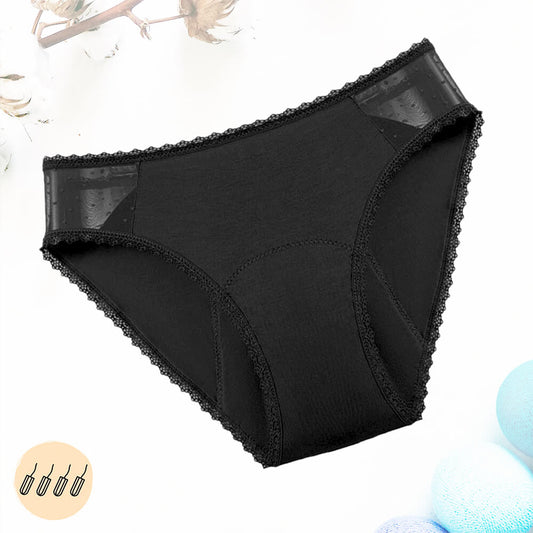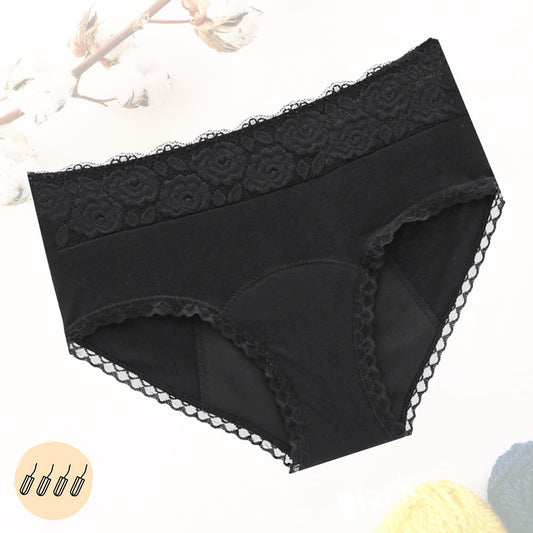
The occasional formation of blood clots during menstruation is perfectly normal. The amount, length, and frequency of bleeding vary from month to month and from woman to woman. The jelly-like substance you see is mostly blood and clotted tissue that is expelled from the uterus during menstruation. However, the appearance of large blood clots and heavy bleeding can sometimes be a cause for concern.
What is a Menstrual Blood Clot?
Periods begin when hormones cause the body to shed the lining of the womb (endometrium). Clots occur when the mucous membrane loses a significant amount of blood. To prevent a lot of blood loss, your body produces blood clots by combining plasma (the liquid part of blood) and platelets (blood cells that bind together).
How Do Blood Clots Form?
Menstrual blood clots are a mixture of blood cells, tissue from the lining of the uterus, and blood proteins that help regulate blood flow. When blood pools in the uterus or vagina, it begins to clot. This clotting prevents the blood vessels in the mucosa from continuing to bleed. When periods are heavier, proteins in the blood can start to clump together, causing blood clots to form. These blood clots tend to be larger because more blood is in the uterus.
Blood Clot & Heavy Periods

Periods are a great way to check the state of our body. The color, texture, odor or vaginal discharge give us great insight into how our bodies work. Blood and tissue from the breakdown of the mucosa pass through the cervix before being evacuated through the vagina.
Blood clots are usually accompanied by heavy periods. Menorrhagia is defined as heavier and longer menstrual bleeding than usual. Periods are considered heavy when, for example, you have to change periodic protection every hour several times a day or when they last more than seven days.
In addition to blood clots, abundant periodss can negatively impact a woman's quality of life and lead to other problems such as anemia.
Period Panties For Heavy Periods
If you have very heavy periods that lead to blood clots, we have a few period panties specially designed for you. These models have an extra absorbent layer to offer you optimal support and protection.
Causes of Blood Clots During Period
Physical and hormonal factors can affect the menstrual cycle. Depending on your age and medical history, many conditions can increase the volume of your menstrual flow and/or cause clots to form:
-
Uterine Fibroids
Fibroids are usually non-cancerous growths that develop in the uterine wall and can cause heavy menstrual bleeding.
-
Endometriosis
Endometriosis is a condition in which endometrial tissue from the lining of the uterus grows outside the uterus, usually in the fallopian tubes and ovaries.
-
Adenomyosis
Uterine adenomyosis occurs when the uterine lining grows into the uterine wall. This leads to enlargement and thickening of the uterus. In addition to causing heavy and prolonged bleeding, this common condition can cause the uterus to grow two to three times its normal size.
-
Hormonal Imbalances
To develop properly, the uterine lining depends on the right balance between estrogen and progesterone. Disturbances like hypothyroidism, polycystic ovary syndrome (PCOS), perimenopause, and menopause can cause irregular shedding of the uterine lining, leading to clots and heavy bleeding.
-
Miscarriage
A miscarriage can happen very early. Many miscarriages occur before the woman even knows she is pregnant. Miscarriages and ectopic pregnancies can cause particularly heavy bleeding.
-
Uterus Or Cervix Cancer
Although rare, cancerous tumors of the uterus and cervix can lead to blood clots.
Are Blood Clots Normal During Period?






